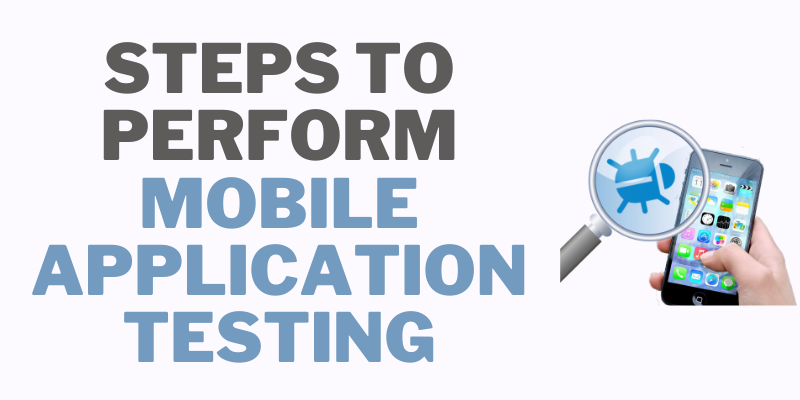
What is Mobile App Testing:
Mobile app testing is a method of testing mobile applications for functionality, usability and compatibility. It is slightly different from web app testing and software testing. FITA Academy’s Mobile Testing Training in Chennai offers certification with 100% placement support.
Here in this blog, we describe the steps to perform mobile application testing.
Steps to Perform Mobile Application Testing:
Documentation Testing:
The documentation testing -preparatory step marks the start of mobile testing. While the application development, the testers must present the screen layouts, navigation maps, and other needs for the secured design. The documentation stage observes the invention and requirement analysis like test cases, traceability matrix and test plan.
Functional Testing:
It allows you to test whether your mobile app performs as planned and according to the standards. The functional factors include the business functionality of your app like social networks, banking, game industry etc.
Usability Testing:
The usability testing confirms that your application presents suitable browsing to your clients and offers a user-friendly interface that conforms to industry requirements. It promises apps that are very fast and easy to use. FITA Academy is the best place to learn Mobile Application Testing Online Training provides projects by real-time experts.
User Interface Testing:
User Interface testing assures that your application GUI satisfies all the needed specifications.
Configuration Testing:
Configuration testing checks your application optimal performance on various devices based on size, pixel density, model, hardware, and others. The configuration testing includes,
Cross Browser Testing: Testing the compatibility of your mobile application on several browsers like Mozilla Firefox, Google Chrome, Opera Mini, etc.
Cross-Platform Testing: Testing your mobile app operability with some functioning systems like Android, Windows, iOS, and BlackBerry.
Database Testing: Testing the interoperability of your mobile application with several database configurations including, Oracle, DB2, MSSQL Server, and Sybase MySql.
Device Configuration Testing: Testing the compatibility of your mobile application on various devices based on device type, such as smartphone, tablet, and so on.
Performance Testing:
Performance testing allows you to examine your application’s response and consistency under certain workload conditions.
Security Testing:
Security testing checks your application’s security features. It also examines the threats posed by application hackers, security, viruses, and illegal access to personal data.
Change Related Testing:
After thorough testing, some defects may be discovered, necessitating the modification of a specific piece of code to eliminate bugs. Following these code modifications, you must perform another round of testing. This testing easily helps you to develop your applications. Mobile Testing Training in Bangalore presents more opportunities for career development.